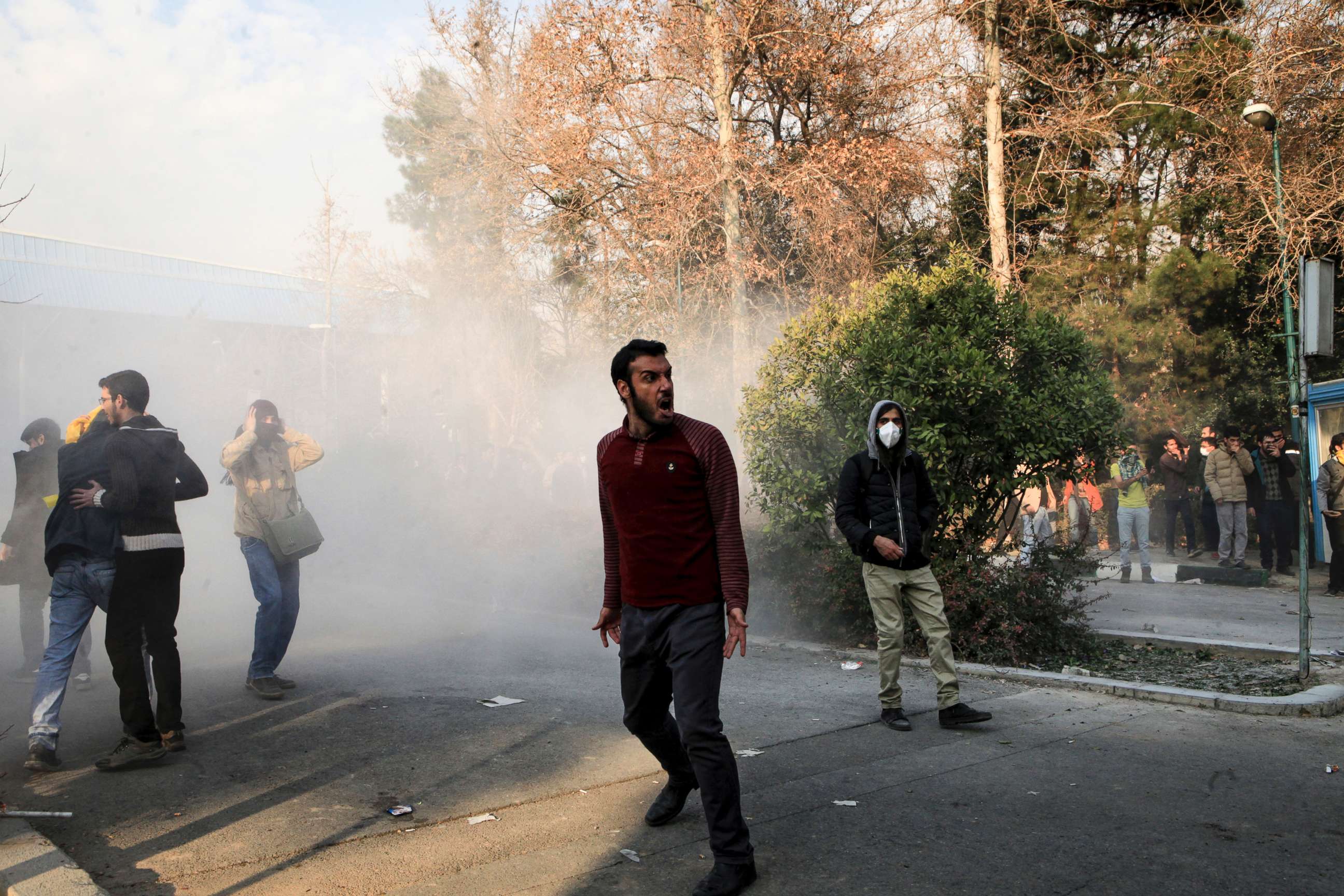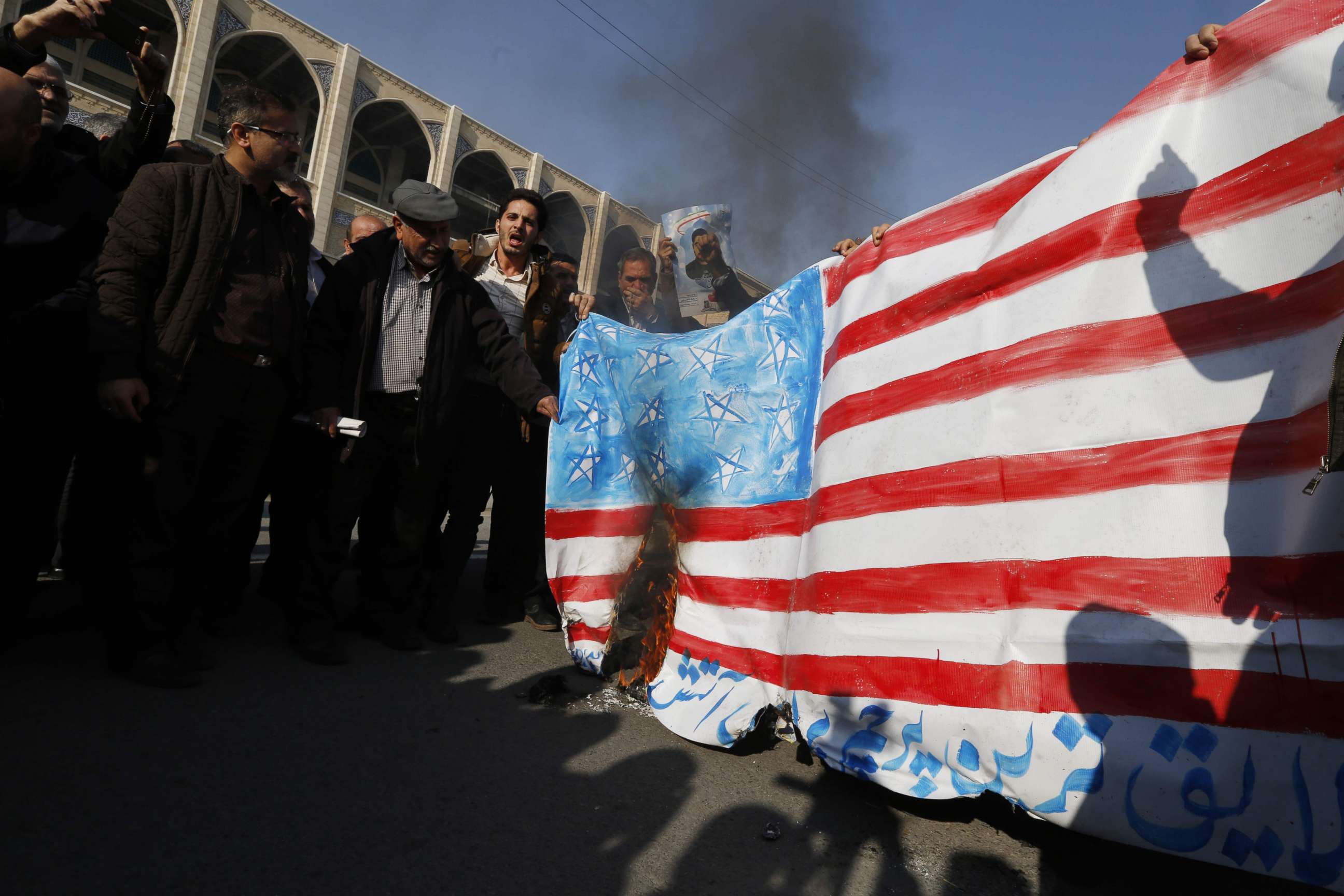Nikki Haley: Iranian regime 'on notice' over crackdown on protests
"The world will be watching what you do,” Haley said.
— -- U.S. Ambassador to the United Nations Nikki Haley offered fierce criticism of Iran at the Security Council Friday afternoon, blasting the regime for ignoring its own people and instead spreading “conflict and instability far and wide.”
“The Iranian regime is now on notice. The world will be watching what you do,” Haley said.
The strong words come as Iran continues to blame the U.S. for fomenting the protests amid the Trump administration's tougher line on the country — from President Donald Trump's refusal to certify Iran's compliance with the nuclear deal to a couple waves of sanctions on Iranian officials over Iran's ballistic missile program and human rights abuses.
Less than a year ago Trump's then-National Security Adviser Michael Flynn also put Iran “on notice” for “Tehran’s malign actions—including weapons transfers, support for terrorism, and other violations of international norms,” he said on February 1, 2017.
With Iran's representative to the U.N. body positioned mere feet away, Haley dismissed the regime's “dishonest attempt to call the protesters puppets of foreign powers” and emphasized that the protests are a “spontaneous expression of fundamental human rights,” with Iranians “acting of their own will on their own behalf for their own future.”

The Iranian government accused the CIA of orchestrating the protests, according to state-run media, with intelligence support from Israel and financial backing from Saudi Arabia, Iran's two greatest regional enemies.
Protests have rocked the Middle Eastern country for over eight days now, hitting 79 cities or towns in total, according to Haley. They are the largest protests since the disputed presidential election in 2009 — a revolt against a stagnant economy, money spent abroad, and a corrupt government, according to protesters.
The Iranian government has responded with a firm hand, arresting hundreds. At least 21 people have been killed, according to the Associated Press, as state-run media have instead showcased a wave of pro-government protests and repeatedly played nationalistic songs.

In particular, Haley said the U.S. calls on Iran’s government to stop censoring social media outlets and to restore Internet access –- and on the international community to “do more” than issue statements of support, saying, “We cannot allow” the ongoing crackdown on protesters “to happen.”
The Trump administration announced new sanctions against four Iranian entities Thursday for their involvement in the ballistic missile program — but tried to tie the announcement to the protests as well.
“These sanctions target key entities involved in Iran’s ballistic missile program, which the Iranian regime prioritizes over the economic well-being of the Iranian people,” Treasury Secretary Steven Mnuchin said in a statement with the announcement. “As the Iranian people suffer, their government and the IRGC fund foreign militants, terrorist groups, and human rights abuses.”
It's unclear if the U.S. is preparing for any actual actions against the Iranian government for their crackdown on the protests, either at the U.N. or unilaterally. Secretary of State Rex Tillerson said Friday that more sanctions “will be coming” in an interview with CNN.
Haley was one of the only representatives to issue such a full-throated statement of condemnation of the regime. While allies like the United Kingdom and France censured the government as well, they also went out of their way to note Iran’s compliance with the nuclear deal — and called on “all parties” to uphold their commitments to it.
That was a warning as much for the U.S. as Iran.
America’s antagonists on the Security Council had harsh words for why the session was even called, arguing the issue is not one of international security, but rather domestic politics.
“The situation is not an issue that belongs on the agenda of the Security Council,” the representative from Bolivia said, saying it will “run the risk of the Security Council becoming a political tool exploited for each member’s ends.”
To that criticism, Haley preemptively pushed back, arguing, “Freedom and human dignity cannot be separated from security.”
“Every UN member state is sovereign, but member states cannot use sovereignty as a shield when they categorically deny people human rights and fundamental freedoms,” she added.




